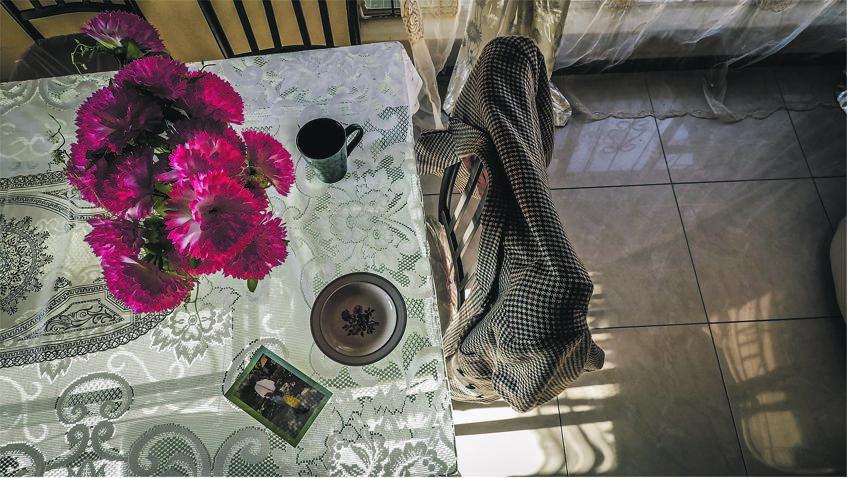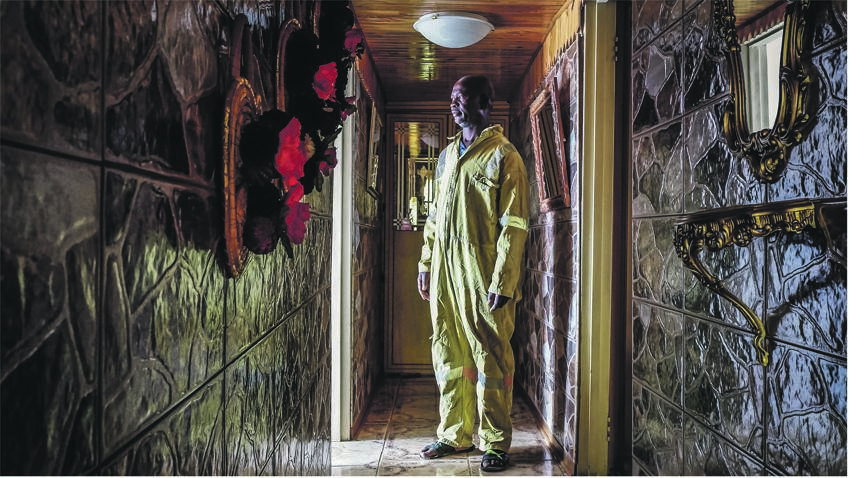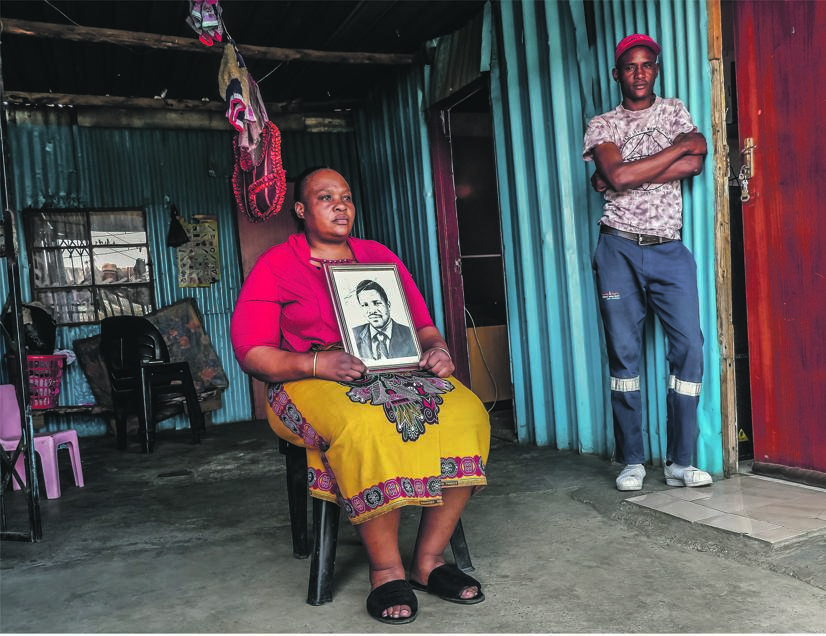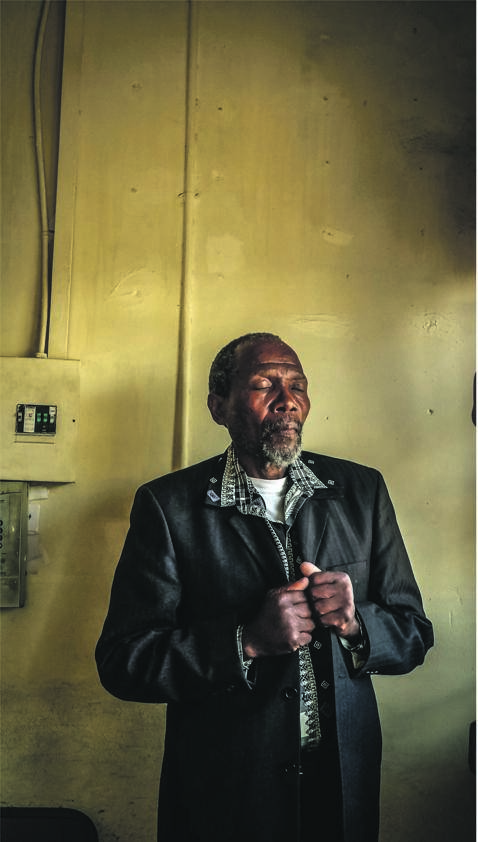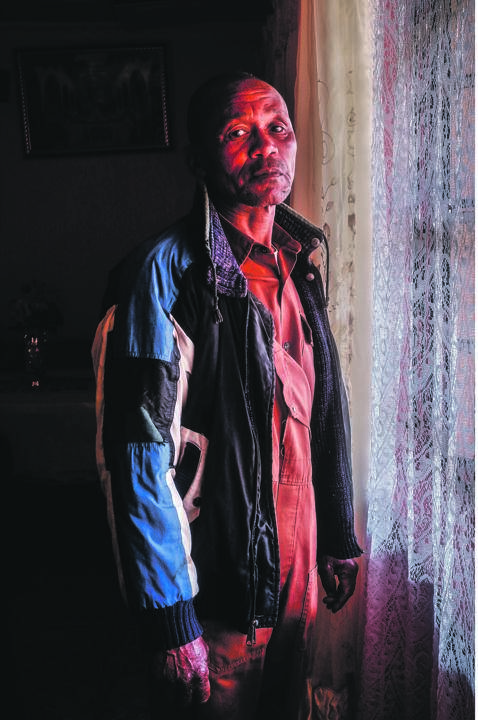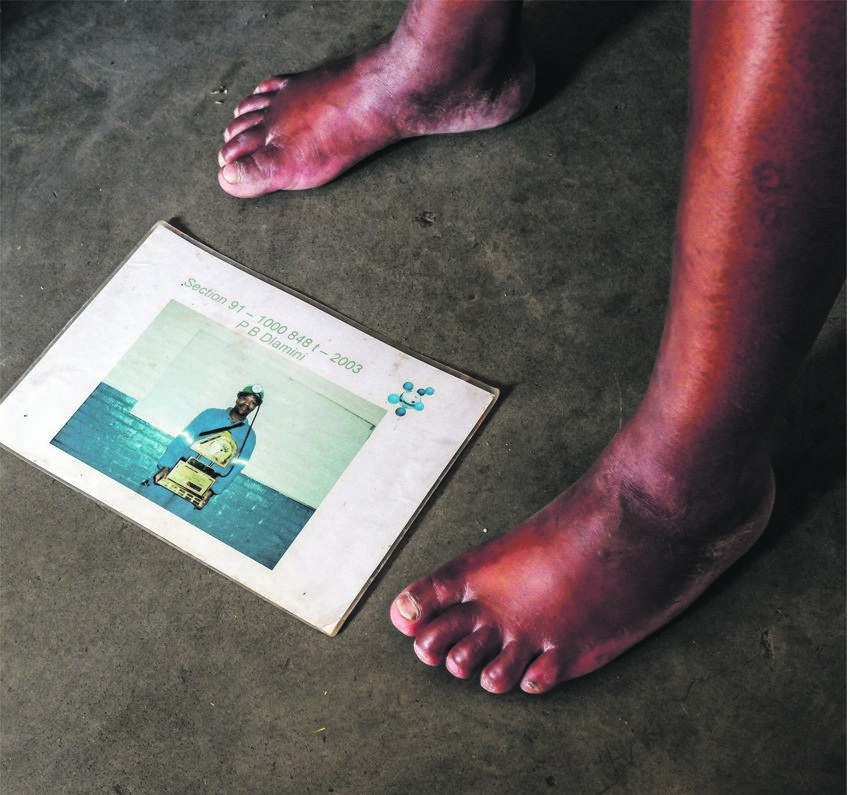In this series, titled Otata Bafel’ Emigodhini, photographer Tshepiso Mabula tells a story of families who gave up their men, hoping for a better life, only to have sick men – and even lifeless bodies – on their return
The pungent smell of brandy wafts out of Bab’ Dlamini’s mouth as he speaks to me.
It was the same alcohol-infused smell that was present on Mzileni’s breath when I sat down to speak to him at his homestead, high up in the mountains of Sterkspruit or eHershele as it is known to its native inhabitants.
Both Dlamini and Mzileni are complainants in the lawsuit that coal mine workers have lodged against Sasol – the Makoti and Others vs Sasol Mining.
An advocacy group, the SA Catholic Bishops’ Conference Justice and Peace Commission, organised an opportunity for me to meet some of the plaintiffs in the lawsuit.
I could tell that Dlamini’s heart was heavy and that the brandy was a short-term anaesthetic which probably gave him little comfort from his haunting thoughts.
Dlamini, like many of the men I’d spoken to, was a former miner who worked in the coal mines, where he contracted coal workers’ pneumoconiosis, or black lung disease as is commonly known.
I ask him how this has affected his daily life.
Dlamini pauses and begins to break down, the whole room grows silent and an awkward tension builds.
I get up to comfort him as best as I can. I ask that he be given water to drink and, after a few sips, he is able to compose himself.
Of all the men I spoke to, Dlamini’s story still haunts me.
A grown man, brought to tears by the thought of his inability to provide food or a decent education for his children.
Many of the men who are part of the lawsuit had similar experiences.
In between thoughts about the perfect composition and how best to reflect their stories photographically, I thought a lot about our conversations.
These men left families behind, held on to a hope for a better life, only to be left for dead after mining all the coal they could from the belly of the earth.
This is what this story is about.
The images in this series aren’t just a body of work, they are visual reflections of our fathers, uncles and brothers who laid their bodies on the line to bring up coal to be sold for much more than the price of their lives.
Most of the people I spoke to kept saying “Lebitla le nkemetse”, which can be translated to say “A gravesite awaits me”.
It is the truth laid bare.
For years black bodies have been used as commodities that work tirelessly to churn out millions of rands in profit for capitalists while they are quickly disposed of without any tangible compensation when they’re unable to churn out any more.




 Publications
Publications
 Partners
Partners




